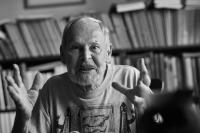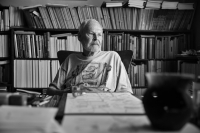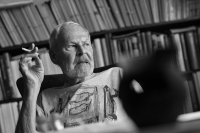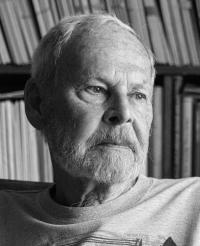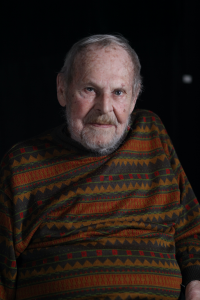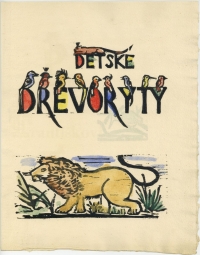The worst part was to walk through an empty and silent printing house with no machines

Download image
Vít Vokolek was born on 28 May 1936 in Pardubice. He comes from the artistic Vokolek family of printers and publishers from Pardubice. His father Vlastimil became a co-owner of the printing house in the 1930s and changed its name to “V. Vokolek and son”. Alongside his father, he visited many important Czechoslovak artists of the 20th century. During World War II, he witnessed the bombing of Pardubice - before the air raid in July 1944, his family and his family friend, Abbot Anastáz Opasek, hid in the basement of the printing house. His plan to study abroad was disrupted by the communist coup, as well as the existence of the printing house - the communists ordered to destroy all machines and equipment. After this terrible experience, Vít’s grandfather Václav Vokolek suffered a heart attack, to which he succumbed. The communist persecution of the Vokolek family continued - Vlastimil was not allowed to print or publish; no one from the family could be employed in Pardubice; his uncle Vojmír’s phonetic poems were censored. In November 1960, his mother Helena died tragically in a railway accident near Stéblová. Under unexplained circumstances, Vít Vokolek got into the Faculty of Philosophy at Charles University, where he studied from 1954 to 1958. As a boy, he loved the stories of ancient pre-Columbian civilisations, but ended up with the European Bronze Age. Vít Vokolek, a native of Pardubice and an innovator in his field, began with archaeology at the age of 14 and has since conducted dozens of excavations of prehistoric settlements and burial sites in eastern Bohemia. From the 1990s, Vít Vokolek was employed at the National Museum. Nowadays (2021) he still lives in Pardubice, as a retired archaeologist he is still actively involved in new excavations, during which he passes on his experience to younger colleagues.
